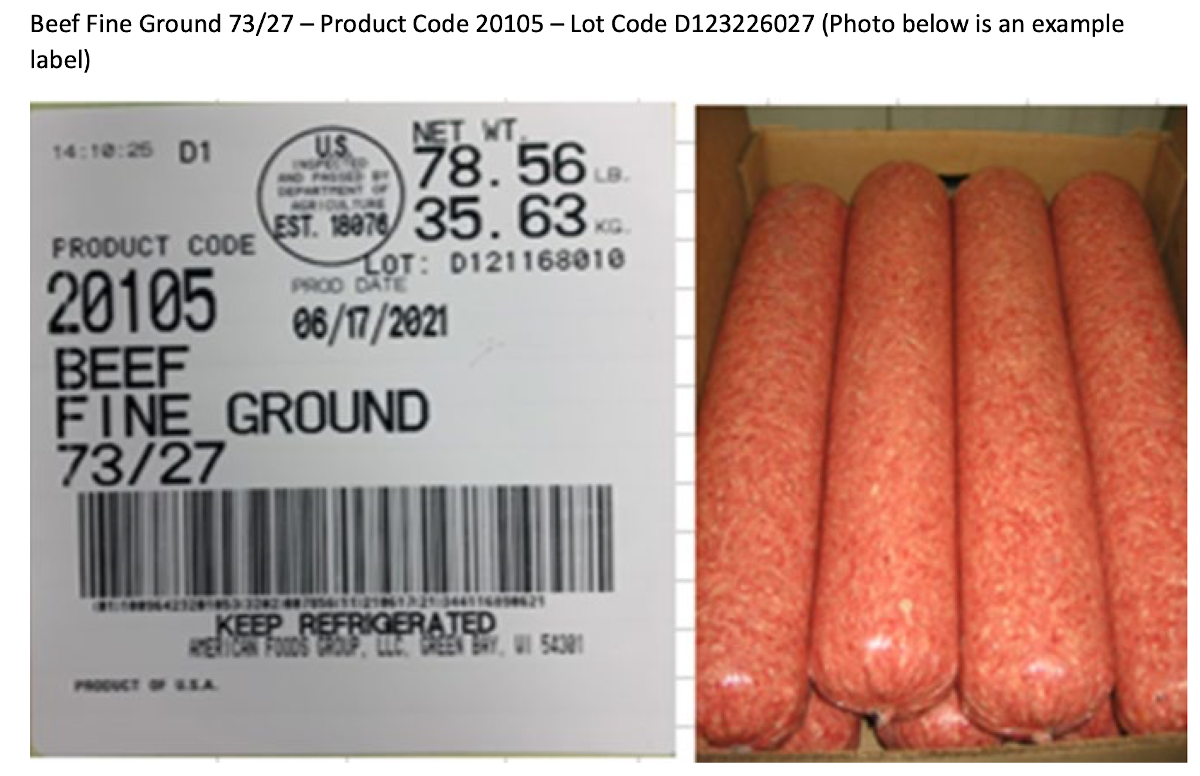
American Foods Group LLC, operating as Green Bay Dressed Beef LCC, headquartered in Green Bay, Wisconsin, has issued a recall of approximately 58,281 pounds of ground beef products. The recall is a precautionary measure in response to concerns that these products may be contaminated with Shiga toxin-producing E. coli (STEC) O103. The announcement was made by the USDA’s Food Safety and Inspection Service.
The implicated raw, ground beef items, all produced on August 14, 2023, are as follows:
These products can be identified by the establishment number “EST. 18076” inside the USDA mark of inspection. They were distributed to various locations in Georgia, Michigan, and Ohio.
The issue came to light when a sample collected by a state public health partner tested positive for E. coli O103. Fortunately, no confirmed cases of adverse reactions linked to the consumption of these products have been reported thus far.
It’s essential to note that not all clinical laboratories routinely test for non-O157 STEC, such as O103, as it can be more challenging to identify than the more commonly known O157:H7 strain. Symptoms of E. coli infection typically appear 2-8 days (with an average of 3-4 days) after consuming the contaminated product.
Distributors and consumers who have purchased these ground beef products for further processing are urged not to use or distribute them. Instead, they should be disposed of or returned to the place of purchase.
About E. coli Infections
If anyone who has consumed these products develops symptoms of an E. coli infection, they should promptly seek medical attention and inform their healthcare provider of their potential exposure to the bacteria. Diagnosis requires specific tests, as the symptoms can resemble other illnesses.
Symptoms of E. coli infections can vary but often include severe abdominal cramps, bloody diarrhea, and sometimes a fever. Most individuals recover within one to two weeks. However, it’s important to note that some may develop severe or life-threatening symptoms and complications.
Approximately 5 to 10 percent of E. coli infection cases progress to a potentially life-threatening condition called hemolytic uremic syndrome (HUS). Symptoms of HUS include fever, abdominal pain, fatigue, decreased urination frequency, unexplained bruising or bleeding, and paleness.
While many people with HUS recover within a few weeks, others may suffer permanent injuries or, in severe cases, fatalities. This condition can affect individuals of any age but is most common in young children, older adults, and those with compromised immune systems.
If someone experiences symptoms of HUS, immediate medical attention is crucial. Hospitalization may be necessary as HUS can lead to severe and lasting health problems, including hypertension, chronic kidney disease, brain damage, and neurological issues.